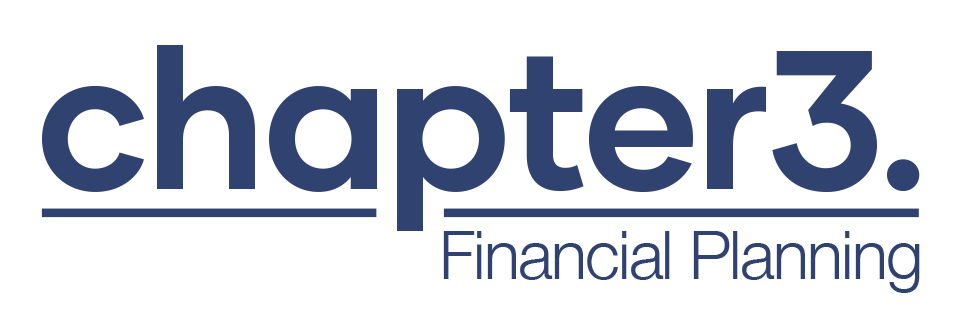How a holistic approach to tax planning could help you to keep more of your business profits
Tax planning as a business owner has an added layer of complexity. With both your personal and business taxes to consider, a holistic approach is key to making sure you pay the right amount of tax.
This is because there are tax allowances and reliefs that can offset one another, allowing you to be strategic in the way you approach tax planning.
By making the most of the allowances available to you, you could improve your tax efficiency, enabling you to put more of your hard-earned profits towards hitting your personal and professional goals.
Read on to learn more about how holistic tax planning could help you to keep more of your business profits.
Taking a holistic view can help you to improve your tax efficiency
Even though your business and personal finances are ringfenced when you own a limited company, there are some ways in which they can affect one another when it comes to tax efficiency. Here are a few examples to demonstrate this.
Corporation Tax
Your Corporation Tax bill is likely to be your most significant tax expense each year. As such, it’s important to ensure you make the most of the allowances that could help you to reduce the amount you owe.
Since Corporation Tax is charged on the profits your business makes, you can usually claim relief on any expenses that are incurred solely for the purpose of running the business. These expenses are subtracted from the total profit you have made, and the tax bill is calculated based on this final value.
Allowable expenses include:
- Raw materials or stock purchased that will be resold
- Employee salaries
- Employers’ National Insurance contributions
- Business insurance
- Training fees
- Accountancy fees
There are also certain types of tax relief that you can claim, such as:
- Research and Development Relief
- Reliefs for creative industries
- The Patent Box, if you make a profit from a patented invention.
Extracting profit from your business
If you choose to extract profit from your business as salary, this may reduce your Corporation Tax bill, since salaries are an allowable expense.
It’s important to remember how this could affect your personal tax position, though. While taking a salary could reduce your Corporation Tax bill, Income Tax rates are higher for salary than if you were to take your profits as dividends.
This demonstrates why a holistic approach to tax planning is so beneficial for business owners. If you were solely focusing on reducing your Corporation Tax bill, you might inadvertently end up paying more in Income Tax.
A further consideration for extracting profit from your business is your pension. Paying into a pension can be a tax-efficient way to extract profit because contributions are an allowable business expense.
Read more: 5 tax-efficient ways to use surplus cash in your business
Corporate investing
Of course, you may wish to keep retained profits inside the business. This provides a multitude of options for improving tax efficiency, including corporate investing.
By investing your profits, you give them the opportunity to generate positive returns, potentially growing your cash reserves further than they might have done in a cash savings account. This could provide you with an additional stream of income to reinvest in the business.
A further benefit of this is, if your business is a micro-entity (defined as business with a turnover below £632,000, 10 or fewer employees, and/or a balance sheet total of up to £316,000), you will only pay tax on investments once they are “realised”.
Small businesses also benefit from this for certain types of investments such as stocks and shares, but may need to declare other types, such as commodities, on their annual tax return.
Corporate investing does carry risk, and you could get back less than you originally invested, so it’s sensible to consult a financial planner before you proceed.
Enterprise Investment Schemes and Venture Capital Trusts
Enterprise Investment Schemes (EIS) and Venture Capital Trusts (VCT) can provide a helpful opportunity to invest your extracted business profits tax-efficiently.
As you read above, taking your business profits as salary can help to reduce your Corporation Tax bill, but at a cost of incurring potentially high rates of Income Tax for you personally. Investing in EIS or VCT could help to offset this.
The government offers tax relief on shares that are bought using EIS and VCTs to incentivise individuals to invest in smaller companies that require finance. When you invest, you can receive 30% tax relief on the cost of the shares you buy, set against your personal tax liability for the year in which the shares were issued.
It’s important to note that EIS and VCT are higher-risk investments that can be volatile. You are usually required to hold them for a minimum of three years. As such, it’s important to only invest cash that you are certain you won’t need access to in the short term.
Our free financial health check can help you to discover if you’re optimising your tax position
If you’d like to learn more about whether you are optimising your tax position as a business, our free financial health check is a great place to start.
This assessment provides a holistic overview of your finances and can offer helpful tips about the areas that may need some attention. The areas covered include:
- Tax planning
- Savings and investments
- Debt management
- Cash flow
- Insurance
- Estate planning
Schedule your free financial health check with us today to begin.
Please note
Enterprise Initiative Schemes (EIS) and Venture Capital Trusts (VCT) are higher-risk investments. They are typically suitable for UK-resident taxpayers who are able to tolerate increased levels of risk and are looking to invest for five years or more. Historical or current yields should not be considered a reliable indicator of future returns as they cannot be guaranteed.
Share values and income generated by the investments could go down as well as up, and you may get back less than you originally invested. These investments are highly illiquid, which means investors could find it difficult to, or be unable to, realise their shares at a value that’s close to the value of the underlying assets.
Tax levels and reliefs could change and the availability of tax reliefs will depend on individual circumstances.
The value of your investments (and any income from them) can go down as well as up and you may not get back the full amount you invested. Past performance is not a reliable indicator of future performance. Investments should be considered over the longer term and should fit in with your overall attitude to risk and financial circumstances.
The Financial Conduct Authority does not regulate tax planning.
This article is for information only. Please do not act based on anything you might read in this article. All contents are based on our understanding of HMRC legislation, which is subject to change.

